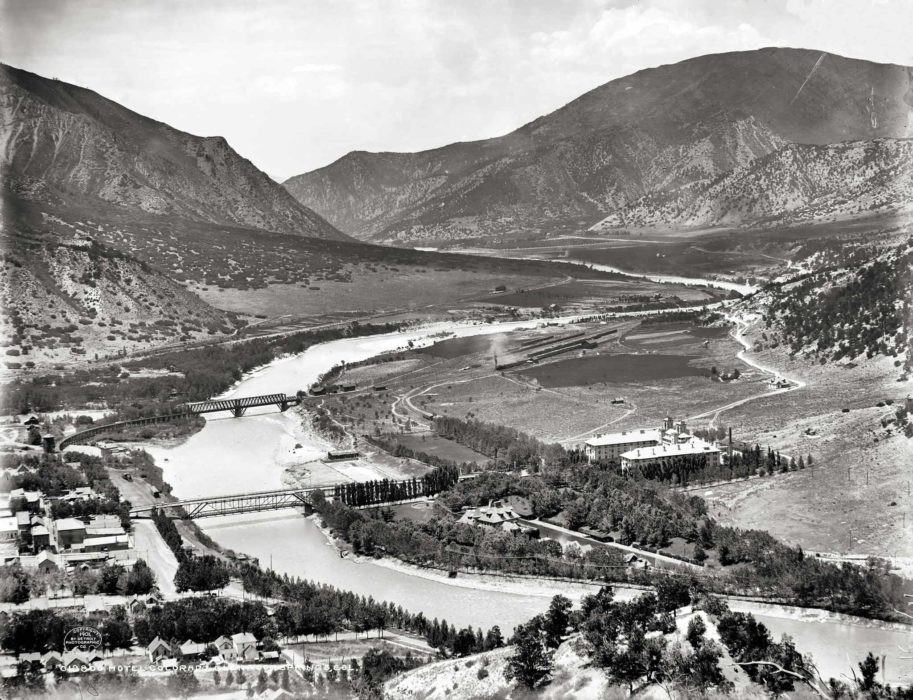‘ABDU’L-BAHÁ, AS WAS HIS usual practice, arose from his bed before dawn at the Shirley Hotel, Broadway and 17th Street, Denver, on Friday, September 27, 1912. He said goodbye to a number of early visitors and then took an automobile — perhaps a carriage — fourteen blocks northwest to the train station.
A wall of rock still separated ‘Abdu’l-Bahá from the Golden State. In 1912 the advanced technologies of the century of motion had not yet fully subdued the Rocky Mountains; the cliffs due west of Denver were still too steep for the railway to climb. The train that departed Union Station at 9 a.m. that morning, therefore, headed due south, skirted the treed foothills of the eastern edge of the Front Range, and completed the first leg of its long and winding route to Salt Lake City when it reached Colorado Springs, seventy miles from Denver.
The snow-capped summit of Pikes Peak receded into the distance as ‘Abdu’l-Bahá’s train continued south across the desert toward Pueblo. The town of Pueblo, Colorado, which produced both steel and saddles, bridged not only the Arkansas River, but also the changing transportation technologies of the era. From there the railroad jackknifed right, pulled west around the southern tip of the Front Range, and began to make a slow, 640-foot ascent to Canon City, nestled among the low mountains.
The route of the Denver and Rio Grande Railway snaked northwest along the Arkansas River, threaded the needle of Royal Gorge, and then climbed a full mile straight upward toward Leadville, Colorado, the highest incorporated city in the United States, at 10,152 feet. Leadville, founded in 1877, became the center of the Colorado Silver Boom when lode deposits of silver-lead were discovered during the Pikes Peak gold rush. The Wild West came with it; Doc Holliday moved to Leadville shortly after the shootout at the O.K. Corral in Tombstone, Arizona.

‘Abdu’l-Bahá’s train crossed the Continental Divide just north of Leadville, at a height of 10,845 feet, slowly descended on a northern route toward the Colorado River, banked west near Vail, traversed scenic Glenwood Canyon, and arrived in the town of Glenwood Springs, Colorado, at about 2 a.m. on Saturday, September 28. Glenwood Springs lies just 100 miles west of Denver as the eagle flies, but the roundabout, early-century train route had taken ‘Abdu’l-Bahá and his secretaries seventeen dusty, bumpy hours. By the time they reached Glenwood Springs, ‘Abdu’l-Bahá felt very ill.
Instead of continuing on to Salt Lake City, they disembarked in Glenwood Springs and took rooms at the Hotel Colorado, where they spent the next day visiting the hot springs, looking at the shops, roaming the gardens, and breathing the mountain air.
“Today I am relieved of fatigue,” ‘Abdu’l-Bahá said. “We have been to many lovely places during this journey but because of our work we had no time to look at the scenery. We did not even think of a moment’s rest. Today, however, we have had a little respite.”






